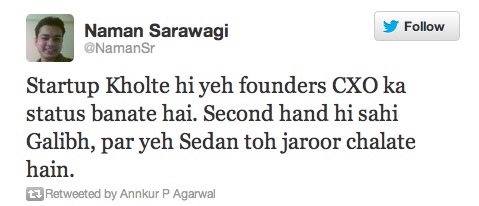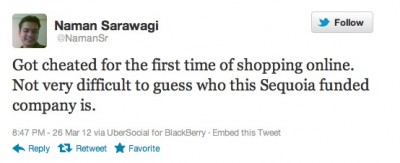I have been thinking this ever since I met Kashyap of Inkfruit at the first Startup Saturday I attended in February 2009. Apparently the founders of Inkfruit have titles like ‘Maharaja’ and ‘Nawab’ instead of CEO and that made me think if a Startup founder should really use a CEO tag?
While it most cases it makes no difference to what business one does, but we do have people who would frown at a CEO tag used in a 5 people company. I wouldn’t care much on what a founder labels himself, but if I am to propose a title, Startup CEO’s are ‘C2C’ (Clerk to CEO). That’s what you really do. The day you have a CEO tag, you are probably a mid-sized company, not a startup anymore 🙂
PS: You can always act like a startup. No matter how big you are.


